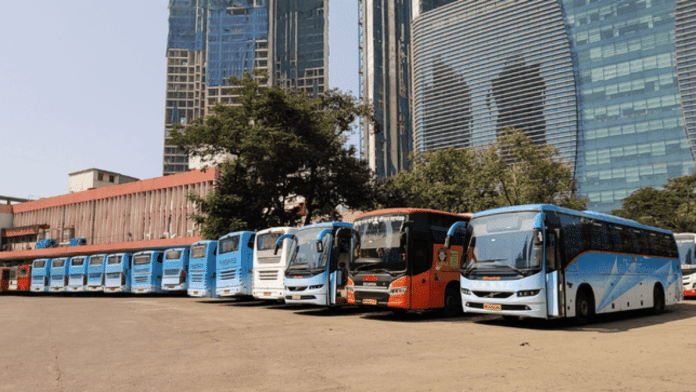Thank you dear subscribers, we are overwhelmed with your response.
Your Turn is a unique section from ThePrint featuring points of view from its subscribers. If you are a subscriber, have a point of view, please send it to us. If not, do subscribe here: https://theprint.in/subscribe/
In recent times, political promises have taken a peculiar turn. Among the many pledges made during elections, one that stands out is the offer of free travel to women on state-run buses. While this may appear benevolent on the surface, a closer examination reveals its inherent flaws and the unintended consequences it brings.
The Equality Paradox
Consider a struggling couple, both barely making ends meet. The husband and wife share the same financial hardships, yet under the proposed scheme, they would be treated differently. The wife, earning a modest ₹10,000 per month, would still need to beg for a small travel allowance. Why should she be subjected to this indignity? The promise of free bus travel for women perpetuates the notion that they are inherently poor and deserving of charity.
The Mumbai Scenario
Let’s delve into the specifics. Take suburban Mumbai, where a typical AC bus fare is ₹6. For an adult commuting to work 25 days a month, the monthly expense amounts to ₹300. However, if the same individual opts for a bus pass, the cost reduces to ₹150. This equitable treatment extends to both men and women. Now, imagine the sudden implementation of free bus travel for women. The politicians, vying for power, would be tossing a princely sum of ₹300 or ₹150 at them. It’s akin to paying alms to a beggar.
The State Transport Undertaking Dilemma
Beyond the optics, this policy undermines state transport undertakings. These agencies already grapple with financial woes, and gratuitous travel subsidies exacerbate their precarious situation. The funds diverted to free travel could be better utilized to improve infrastructure, enhance services, and ensure the viability of public transportation. Instead, we witness a misguided attempt at populism that ultimately harms the very system it aims to support.
The Government Employee Conundrum
Interestingly, government employees also enjoy similar travel benefits. Yet, by no stretch of imagination can they be classified as poor. This discrepancy highlights the absurdity of the policy. Shouldn’t subsidies be targeted toward those genuinely in need?
The Power Dilemma
The same pattern emerges in the power sector. States like Delhi, Punjab, Telangana, and Karnataka offer free electricity up to a certain consumption threshold (usually around 200 units). In Mumbai, where power costs are steep, the bill for 200 units amounts to approximately ₹1,200 per month (₹14,400 annually). While the intent is to alleviate financial burdens, it inadvertently perpetuates dependency rather than empowerment.
A Call for Rationality
Is it not time for citizens to rise and demand efficiency over handouts? Rather than perpetuating a culture of doles, we should advocate for policies that enable self-sufficiency. Let’s focus on improving public services, creating jobs, and fostering an environment where hard work is rewarded. The state transport undertakings and power utilities desperately need financial stability, not further strain.
In conclusion, the distribution of money in the name of travel subsidies may seem well-intentioned, but it ultimately perpetuates inequality and weakens essential services. As responsible citizens, we must question such policies and advocate for sustainable solutions that empower individuals rather than treating them as perpetual beneficiaries.
These pieces are being published as they have been received – they have not been edited/fact-checked by ThePrint


